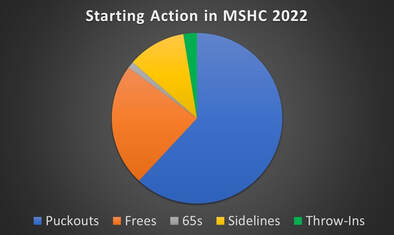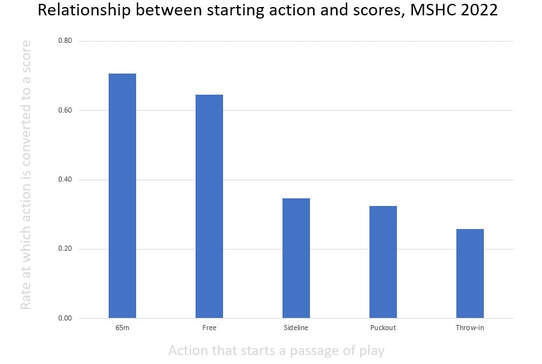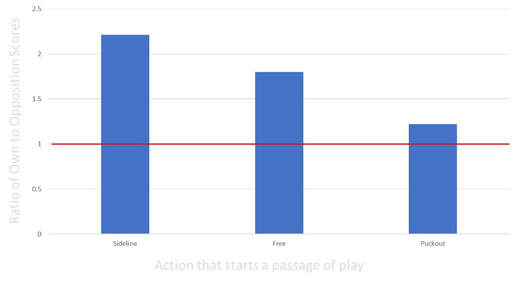A game of hurling in 2022, at the highest level, involves approximately 124 passages of play. Every game has two passages of play that start with the referee throwing in the ball, i.e. one per half. Every game has two passages of play that ends with the referee signalling that the 35-minute half has ended. Nearly all passages of play end with either (i) the ball leaving the field of play, or (ii) a player engaging in unfair (foul) play. The start of the next passage of play depends on how the previous play has ended. Restarts after the ball has left the field of play dominate, i.e. puckouts, sidelines, and 65m shots. The distribution of 2022 restarts in the Munster Senior Hurling Championship are presented below.
Puckouts may dominate in terms of quantity but there is a strong case to suggest that hurling is a game of fair play. Economists might say that there is a lot of incentive compatibility. The biggest costs are imposed on teams who do not play the game as it is intended. Teams are most likely to incur a score against themselves when they concede a 65m (touch the ball over their own endline outside the scoring zone similar to a soccer team conceding a corner). Over 70% of these were converted in the 2022 MSHC (although these are rare events as shown above). Where a team is penalised for unfair or foul play then the resulting free produces a score approximately 65% of the time. This percentage increases by about 10% for frees that are within range of the scoring area (see previous post). The picture below illustrates the likelihood of a score resulting from a particular restart.
On these numbers, hurling is a game of fair play.



 RSS Feed
RSS Feed